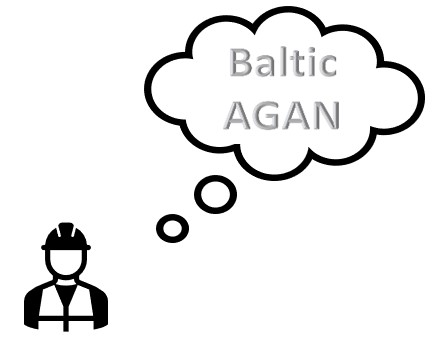Ammonium Nitrate Prices based upon the Baltic AN Index

In our previous blog, we touched upon some of the considerations for mining companies as ammonium nitrate (“AN”) availability became limited and prices were rising quickly, principally driven by natural gas costs in Europe and limitations imposed by Russia on exports of domestically produced AN. Over the last two months, since we published that information, the supply situation has become even more complicated following Russia’s invasion of Ukraine.
However, whilst not impacting supply directly, we have now seen that one of the indices (or independent reference points) used to calculate prices in many contracts for AN and bulk explosives is starting to be published with an indication of ‘no market’. Specifically, this refers to the Baltic Ammonium Nitrate Index, which references the prices of sales of fertilizer grade AN made in the Baltic Sea. This index is also referred to sometimes as Baltic AGAN (Agricultural Grade Ammonium Nitrate).
The Baltic AGAN index is often used in supply contracts with adjustment formulas where AN is normally sourced from the Baltic Sea region. Many of the tonnes from there are delivered to Latin America and parts of Africa, (typically not Southern Africa) although they do appear in more far-flung destinations.
So, what does the ‘no market’ indication mean?
If your explosives contract pricing mechanism references this index, it is likely that the contract does not define what happens when the index isn’t published. In practical terms, this means that you will need to negotiate with your AN or explosives supplier to agree an alternative mechanism to use. Given the supply complications in the market at the moment, as well as the contractual nature of most explosives supply arrangements, any such negotiations have the potential to be difficult.
Given the limitations on supply from Russia that have been in place since December, it’s unlikely that any AN being consumed at site (as AN or in a bulk emulsion product) will be sourced from the Baltic Sea region in the short term. Where the source of supply has had to change, many explosives companies have worked diligently to establish alternative supply chains to keep an uninterrupted flow of product to their customers. Those efforts may well have been accompanied by discussions to address the additional costs incurred, but may or may not have led to a change in the index used in the pricing formula.
Given the complexity of pricing adjustment formulas, it can become very difficult to determine what a fair outcome is for both the customer and the supplier when determining a new price mechanism or agreeing an approach to cover additional costs incurred due to the unprecedented global supply circumstances.
Some suppliers have been seen to be taking advantage of the situation and have ‘hidden’ significant additional margin in the changes that are being made to price formulas. More positively, other explosives suppliers are taking a more collaborative approach and are just focusing on the additional costs being incurred.
For now, it is clear that arrangements will need to be made to address this latest development and the implications that it has for setting pricing in many contracts. Fortunately, as most supply contracts are linked to historical index values, there is still a window in which to conclude these discussions before the ‘no market’ indications would flow into existing pricing formulas.
At Moncourt Group, we provide our clients with independent subject matter expertise in relation to the supply of ammonium nitrate and bulk explosives. At a global, regional and local level, we identify viable supply options and then develop, implement, and manage contracts that are in the best interests of our customers. We deliver the necessary commercial, technical and operational outcomes whilst appropriately managing the underlying risks.
© Copyright 2024 Moncourt Group Pte. Ltd. UEN: 201501793G All rights reserved. Legal Privacy Policy


